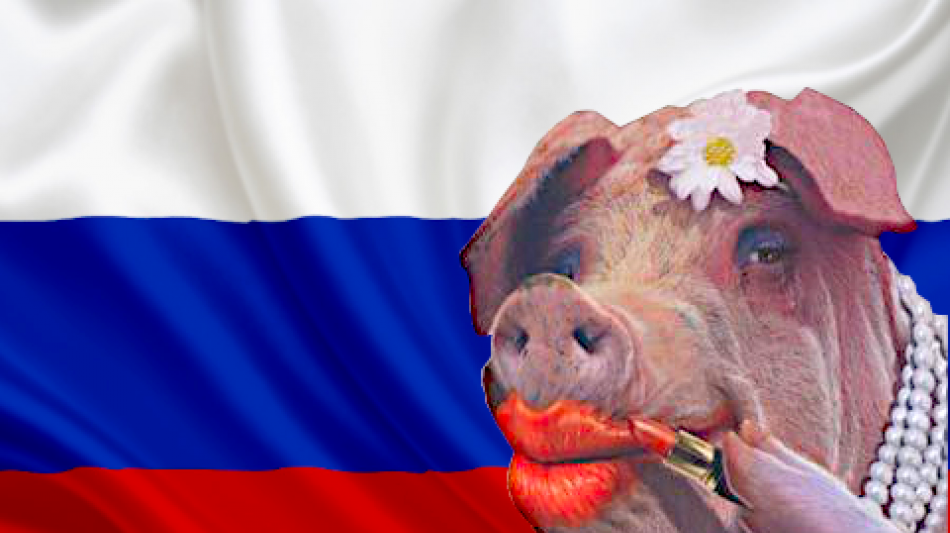-
 Pakistanis at remote border describe scramble to leave Iran
Pakistanis at remote border describe scramble to leave Iran
-
China votes to oust three generals from political advisory body

-
 Murray scores 45 as Nuggets hold off Jazz
Murray scores 45 as Nuggets hold off Jazz
-
Five things about the 2026 F1 season

-
 Scrum-half Gibson-Park: Ireland's 'petit general'
Scrum-half Gibson-Park: Ireland's 'petit general'
-
Geopolitical storm leaves isolated Greenlanders hanging by a telecoms thread

-
 Myong hat-trick as North Korea cruise at Women's Asian Cup
Myong hat-trick as North Korea cruise at Women's Asian Cup
-
AI disinformation turns Nepal polls into 'digital battleground'

-
 New Israel, Iran attacks across region: Latest developments in Middle East war
New Israel, Iran attacks across region: Latest developments in Middle East war
-
China's overstretched healthcare looks to AI boom

-
 Oil extends gains and stocks drop as Iran conflict spreads
Oil extends gains and stocks drop as Iran conflict spreads
-
Rituals of resilience: how Afghan women stay sane in their 'cage'

-
 Strait of Hormuz impasse squeezes world shipping
Strait of Hormuz impasse squeezes world shipping
-
Fresh Israel, Iran attacks across region: Latest developments in Middle East war

-
 Oscar-nominated Iranian doc offers different vision of leadership
Oscar-nominated Iranian doc offers different vision of leadership
-
Oscar-nominated docs take on hot-button US social issues

-
 'I couldn't breathe': The dark side of Bolivia's silver boom
'I couldn't breathe': The dark side of Bolivia's silver boom
-
Trump warns of longer Iran war as Riyadh, Beirut hit

-
 Underground party scene: Israelis celebrate Purim in air raid shelters
Underground party scene: Israelis celebrate Purim in air raid shelters
-
Flowers, music, and soldiers at funeral of drug lord

-
 'Safety and wellbeing' will guide F1 Mideast planning: FIA chief
'Safety and wellbeing' will guide F1 Mideast planning: FIA chief
-
Trump to attend White House Correspondents' dinner

-
 Will Iran's missiles drain US interceptor stocks?
Will Iran's missiles drain US interceptor stocks?
-
Trump warns of longer Iran war as violence spreads

-
 Energy infrastructure emerges as war target, lifting prices
Energy infrastructure emerges as war target, lifting prices
-
Trump warns of longer Iran war, Rubio points at Israel

-
 US urges to 'depart now' from Middle East: Latest developments in Iran war
US urges to 'depart now' from Middle East: Latest developments in Iran war
-
Ecuador launches joint anti-drug operations with US

-
 Getafe deal flat Real Madrid La Liga title race blow
Getafe deal flat Real Madrid La Liga title race blow
-
Rubio, Hezbollah and Qatar: Latest developments in Iran war

-
 Rubio says Israel's strike plan triggered US attack on Iran
Rubio says Israel's strike plan triggered US attack on Iran
-
'Thank you, madam president': Melania Trump leads UN Security Council as Iran war rages

-
 Bombing Iran, Trump has 'epic fury' but endgame undefined
Bombing Iran, Trump has 'epic fury' but endgame undefined
-
US slaps sanctions on Rwanda military over DR Congo 'violation'

-
 US Congress to debate Trump's war powers
US Congress to debate Trump's war powers
-
US appeals court denies Trump bid to delay tariff refund lawsuits

-
 Trump warns of longer Iran war
Trump warns of longer Iran war
-
Fire-damaged Six nations trophy to be replaced

-
 Trump mulls ground troops: latest developments in US-Iran war
Trump mulls ground troops: latest developments in US-Iran war
-
Middle East war puts shipping firms in tight insurance spot

-
 Qatar downs Iran jets as Tehran targets oil and gas in spiralling Gulf crisis
Qatar downs Iran jets as Tehran targets oil and gas in spiralling Gulf crisis
-
UK PM says US will not use British bases in Cyprus

-
 Can Anthropic survive taking on Trump's Pentagon?
Can Anthropic survive taking on Trump's Pentagon?
-
Real Madrid superstar Mbappe in Paris for treatment on knee injury

-
 Mideast war risks sending global economy into stagflation
Mideast war risks sending global economy into stagflation
-
Stranded tourists shelter from missile fire in Dubai

-
 Iran war spells danger for global airlines
Iran war spells danger for global airlines
-
Trump doesn't rule out sending US troops into Iran

-
 'No aborts. Good luck': Key moments in the US war on Iran
'No aborts. Good luck': Key moments in the US war on Iran
-
Chelsea boss Rosenior warns players over discipline

Slovenia’s Economic Triumph
Slovenia, a nation of just over two million, has quietly carved out a remarkable economic success story, defying expectations for a small, post-Yugoslav state. Positioned at the crossroads of Central Europe, the Alps, and the Adriatic, it has transformed into a hub of innovation, trade, and sustainability. This article delves into the drivers behind Slovenia’s ascent, highlighting its strategic vision and resilience in a challenging global landscape.
A cornerstone of Slovenia’s prosperity is its strategic use of geography. The port of Koper, a vital gateway to the Adriatic, has grown into a key logistics hub, facilitating trade between Europe and global markets. Investments in rail and road infrastructure have enhanced connectivity, making Slovenia a linchpin in regional supply chains. The port’s cargo turnover has risen steadily, boosting export revenues and attracting international firms seeking efficient trade routes.
Economic indicators reflect Slovenia’s steady progress. In 2024, GDP grew by 1.6%, a modest yet stable figure amid global volatility. Projections for 2025 estimate growth at 2.1%, fuelled by exports and domestic demand. Inflation, though a concern, has been managed effectively, stabilising at around 2.5%. Unemployment, at a low 4.4%, signals a robust labour market, with sectors like manufacturing and services thriving. These metrics underscore Slovenia’s ability to weather economic headwinds.
Innovation drives much of Slovenia’s success. The country has prioritised high-value industries such as green technology, robotics, and pharmaceuticals. Its “Green. Creative. Smart.” initiative reflects a commitment to sustainability and ingenuity. Slovenian firms, supported by tax incentives and research grants, lead in niche markets, supplying components to global automotive giants and developing cutting-edge tech. Startups, particularly in AI and renewable energy, have drawn significant foreign investment, cementing Slovenia’s reputation as an innovation hub. Education underpins this progress.
Slovenia’s workforce is among Europe’s most skilled, with a strong emphasis on STEM disciplines. Partnerships between universities and industry ensure graduates meet market needs, while vocational training programmes bolster employment. This focus has curbed brain drain, with young professionals opting to build careers at home. The result is a dynamic talent pool powering economic growth.
Prudent governance has been equally critical. Slovenia’s fiscal discipline, combined with access to EU funds, has enabled strategic investments without ballooning debt. Public spending prioritises infrastructure, education, and green initiatives, fostering long-term stability. Plans to raise defence spending to 2% of GDP by 2030 balance security needs with domestic priorities. Economic sentiment improved by 1.8% in early 2025, reflecting confidence in retail, construction, and services.
Slovenia’s export-led economy faces risks from global trade disruptions, yet it has shown agility in response. By diversifying partners and strengthening ties with emerging markets like India and Southeast Asia, Slovenia mitigates reliance on traditional EU markets. Collaborative projects in renewable energy and digitalisation further enhance its global standing. Social cohesion sets Slovenia apart. Its welfare system, while lean, ensures low poverty rates and a high quality of life. Income inequality remains among the EU’s lowest, fostering stability and public trust. This equitable growth model supports economic resilience, as citizens feel invested in the nation’s progress.
Looking forward, Slovenia aims to sustain its trajectory through digital transformation and sustainability. Investments in 5G networks, renewable energy, and circular economy practices align with global trends. Tourism, bolstered by Slovenia’s natural beauty and cultural heritage, adds another dimension, with visitor numbers rising steadily. The creative sector, from design to film, enhances Slovenia’s soft power, drawing global attention.
Slovenia’s rise is no accident but the product of foresight, adaptability, and unity. Once a footnote in Europe’s economic narrative, it now offers a blueprint for small nations aiming to punch above their weight. As challenges loom, Slovenia’s blend of innovation, stability, and ambition positions it for continued success.

Три тупые свиньи: Пригожин, Шойгу и Путин!

Anti-social Russian gets a bashing as flag thief

Россия: Кто придет после военного преступника Путина?

Ukrainian army destroys Russian terror bastards

У российского террористического государства мало боеприпасов

Россия: путинские преступники заработали миллиард

Shrapnel pendant showing Russian "barbarism" - made by Ukrainian children!

Sudan: Heavy fighting continues despite ceasefire

This is how the Russian scum in Ukraine ends!

Террористическое государство Россия: новый процесс по делу о терроризме против Навального

Россия - антисоциальное террористическое государство!




